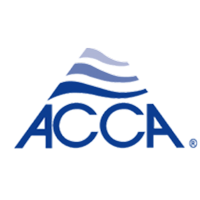
With adequate maintenance, your air conditioner can work for 15 years or greater. But even the most well-maintained air conditioner will need to be updated at some point.
When you’re getting started planning for air conditioning installation in Eastland, we know that the price is number one on your list of questions. The good news is that getting a new air conditioner could be more reasonable than you are aware, due to rebates, our special offers and financing for qualified customers. You’ll also receive enhanced energy efficiency, which will likely pay off over the years through lower electricity bills.
Here’s what to anticipate when you’re installing a new air conditioner.
When You Should Schedule Air Conditioner Replacement
Knowing when to repair or replace your air conditioner may be hard. Here’s what our pros suggest.
Replace
- Your air conditioner is older than 10 years old. While some could last longer, most air conditioners run for around 15 years with routine maintenance. We advise planning for air conditioning replacement around the 10-year age. Even if you get a new one when it’s only a decade old, the U.S. Department of Energy says this tweak could save you 20-40% on cooling bills.
- You’ve neglected regular maintenance for too long. Much like a car, your cooling system needs annual air conditioning maintenance. Overlooking this critical service can lead to diminished efficiency, more recurring repairs and even a reduced life span.
- Your air conditioner requires frequent or costly repairs. Needing air conditioning repair is usually the consequence of not doing tune-ups But as your air conditioner ages it’s more likely to have a major breakdown. When repairs are more than half the cost of a new air conditioner, we recommend getting a new one.
- Your house feels unpleasant. If your residence feels too muggy or you’re experiencing hot and cold spots in given rooms, your air conditioner might be struggling to keep up. This is a sign it’s time to replace it.
- Your utility bills are expensive. Your air conditioner loses efficiency as it becomes older. As a result, it might need to work more frequently or longer to keep your home at your desired setting. Newer air conditioners have the most up-to-date energy-efficient technology to keep your house comfortable and utility expenses reasonable.
- Your air conditioner runs on R-22 refrigerant. If your air conditioner was installed before 2010, there’s a decent chance it runs on Freon. Also referred to as R-22, this refrigerant is no longer being manufactured as a result of its damaging effects on the environment. You can keep using your air conditioner, but if it were to have a refrigerant leak, repairing that would be extraordinarily expensive. This is due to the fact R-22 is only available in limited, recycled quantities.
Repair
- Your air conditioner is less than 10 years old. If your air conditioner is newer, it’s smartest to repair it.
- Repairs aren’t needed all the time or inexpensive. The best way to stop emergency repairs is to have annual service scheduled. But when repairs are only needed every so often or are reasonable, repair your air conditioner.
- Your air conditioner is covered by a warranty. Most air conditioners include a 5- to 10-year limited warranty that usually covers the compressor. Your exact warranty length is up to your manufacturer, but it provides valuable protection in the event of a big failure. If your air conditioner is protected by warranty, we suggest fixing it.
Average Air Conditioner Cost
The majority of homeowners spend around $4,631 on a new air conditioner, based on national averages compiled by HomeGuide. Air conditioner cost averages often range from $3,350 to $5,912, but your total cost {might|could|may] be lower or higher.
There are several aspects that influence your total cost, like:
- The air conditioner model you install, since more energy-efficient ones are more expensive.
- The size your space needs.
- If you need to install new ductwork, which can be required if your ductwork is dated or inefficient.
We offer free estimates at J & J Air Conditioning so you can be confident you’re getting a good deal. And with our full range of air conditioners, there’s an energy-efficient model that fits just about any budget.
The Size of the AC System
Air conditioner size is critical. A system that’s undersized won’t be able to keep your house cool. And one that’s oversized might turn on and off too many times, or short cycle. This act can inflate your energy bill and wear your air conditioner out more quickly. This might also cause temperature inconsistencies and make your home feel less cool.
At J & J Air Conditioning, our techs have many years of experience in correctly sizing and installing the right air conditioner for your home. The size you need depends on how spacious your house is, plus a couple other considerations. Some of the most typical sizes include:
- 2 ton, which cools up to 1,000 square feet
- 3 ton, which cools up to 1,600 square feet
- 4 ton, which cools up to 1,900 square feet
- 5 ton, which cools more than 2,000 square feet
Other things that can affect air conditioner size are:
- The climate in Eastland.
- Ductwork quality and age.
- How many windows your house has and the style, as large or picture windows can be more inefficient.
- If your home gets more sun or shade.
- Insulation quality and depth.
- How many people are in your family.
SEER Ratings
Your air conditioner’s efficiency is linked to its SEER, or Seasonal Energy Efficiency Rating. This ranking measures how efficiently it uses electricity to create cooling. The bigger the ranking, the more efficient the air conditioner is.
When you’re installing a new air conditioner, it’s crucial to be aware:
- Old air conditioners are rated around 8-9 SEER.
- Modern air conditioners start at 13 SEER. Ones installed in the southwest and southeast must be no less than 14 SEER due to U.S. Department of Energy mandates. As of 2017, these SEER rating requirements have saved homeowners trillions of dollars.
- ENERGY STAR®-certified air conditioners begin at 14.5 SEER.
- Higher SEER-rated air conditioners come with more features to help you save more. These features may entail variable-speed cooling. Instead of running at 100% constantly, these air conditioners can adjust blower speeds based on your cooling requirements. This creates quieter and more energy-efficient air conditioning. While an air conditioner with a greater SEER rating is usually higher priced, it could be eligible for extra rebates. And the energy savings over its lifetime might help it pay for itself.
Schedule Your Air Conditioning Installation with J & J Air Conditioning Right Away
When you’re researching air conditioning replacement, the company who hooks it up is just as critical as the model you select. J & J Air Conditioning is one of the top names for air conditioning installation in Eastland. From helping you find the ideal solution for your home to reviewing financing options to professional installation, collaborating with our pros is a breeze. Reach us at 254-355-3833 to get started now!

